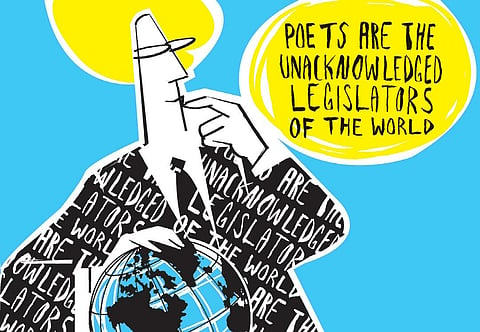

October 2023 will be etched in our collective memories forever. The Israel-Gaza war and geopolitical turmoil has challenged our morality and made us pick sides in a debate with many layers. I am not equipped to resolve the conflict or provide advice on dealing with trauma. Still, as a student of philosophy, I thought of chipping in with what morality in the era of deep geopolitical divides entails.
Iris Murdoch, a British philosopher and novelist, explored the relationship between morality and attention in her work. She emphasised that moral awareness depends on our capacity to pay deep and sustained attention to the reality of others. This involves seeing beyond our own desires, biases and preconceptions, and being genuinely open to the experiences and needs of others. She makes a compelling case for moral imagination and nudges us to put ourselves in the shoes of others, understand their perspectives, and feel empathy for them, especially when it is hard. This moral imagination helps us see the world from a different point of view and expand our moral quotient (MQ).
MQ is more than a set of rules or principles; it is a process of continuous attention to all sides of an argument. Having a point of view doesn’t make one moral or immoral, despite what social media posts suggest. Closing our minds to the lived reality of others is the epicentre of moral conflict. We face it every day. Be it decisions about our work, relational satisfaction, social network, or political choices, we often find ourselves negotiating what we want to believe, what the facts suggest, and what the “other” side is nudging us to consider. This leaves us with two choices: Ignore alternate perspectives because that’s convenient or challenge ourselves to expand our MQ.
Like the Intelligence Quotient and Emotional Quotient, one’s MQ can be augmented with deliberate practice. It comes down to Murdoch’s attention principle. By changing the gaze of who and what we pay attention to, we can learn more about ourselves and the world around us. Every time I start feeling too sure of myself, I nudge myself to consider what I might be missing. This simple act has helped me develop a more holistic understanding of complex subjects.
More importantly, by learning different perspectives, I am able to meaningfully engage with multiple groups of people who share views different from my own. Early in my career, I would be in a rush to share my perspective. Being trained as a parliamentary debater in college helped me make compelling points and relish in ‘winning’ arguments. Looking back, none of those so-called victories taught me anything. I missed the opportunity to augment my MQ.
As I started travelling around the world, I got exposed to multiple realities. It made me less certain of ideas and ideals dear to me earlier. Over a period of time, morality started becoming a process of contextual discovery. What was right to my former self started appearing shaky to my present self. Even though it was an unsettling process, it forced me to pay attention. It was difficult in the beginning, but friendships outside my home turf played a pivotal role in shaping my morality.
It would be silly to call myself morally enlightened now. For most of us, the difficulty of being good is an ongoing struggle, but it is a mistake to think of morality as a fixed reservoir. It can grow with time if we want it to. The opposite can happen as well. Unfortunately, it often does. Take a look at most debates on social platforms. They aren’t interested in moral expansion but rather focus on imposing one set of beliefs on the other. This moral colonisation helps no one and creates loud echo chambers where believers keep amplifying their voices.
What if we flip the script? Instead of moral colonisation, what if we seek moral discovery and co-creation? It will make us better learners, more attentive listeners, better co-workers, and more interesting activists for whatever cause we believe in. Recently I took my mother to The Keats House in London. On the first floor, right next to Keats’ bedroom was a poster that said, “Poets are the unacknowledged legislators of the world.” I think they are because their words help us think and rethink our relationship with the world.
They nudge without being prescriptive and help us arrive at our own conclusions. In other words, they make us more moral by expanding the realm of morality. They guide our attention to unexplored vistas and help us see new possibilities. Perhaps poetry is the way to create a more considerate world, but I am sure there are other ways. Perhaps you should discover yourself.
Utkarsh Amitabh
CEO, Network Capital; Chevening Fellow, University of Oxford
Twitter: @utkarsh_amitabh